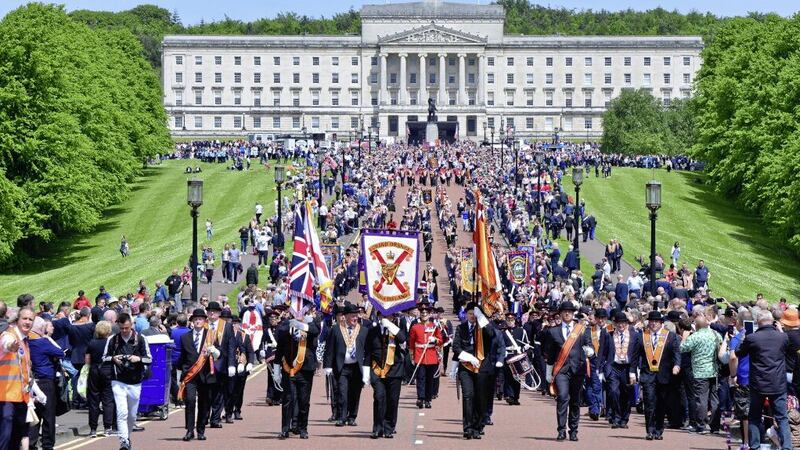THE following article was contributed on this day by the 1798 historian Colin Johnston Robb of Ballynahinch:
In the days of the Irish Volunteers of the 1780s, the sons of Ballymoney, County Antrim stood firm in the cause of the reform of the vile laws imposed upon their native land. The Belfast News Letter of May 1782 records: 'Ballymoney Volunteers. Wanted immediately by the Ballymoney Volunteer Company, a drummer and fifer; also an Exercising Sergeant who has a thorough knowledge of military discipline and whose character must bear the strictest inquiry.'
By 1791 the Volunteers had been succeeded by the United Irishmen, formed in Belfast by Wolfe Tone and some of the town's leading Presbyterian merchants. On the 7th and 8th of June 1798 a big force of the rebels mustered near Ballymoney and we learn from the report of Lord Henry Murray, the commander of the Royal Manx Fencibles, then stationed at Coleraine, that he marched from there early on the morning of 9th June with two corps of the Giants Causeway Yeomanry and two field pieces to disperse the Rebels. When they got to Ballymoney they found the place deserted, many houses of the royalists and Yeomen on fire and that the Rebel Army had gone to Ballymena. In fact, the Ballymoney men were at Broughshane, near Ballymena but do not appear to have been engaged in any fighting.
Many of the old 1780s Volunteers became United Irish leaders in the area - namely George Hutchinson of Stranocum; John Nevin of Derrykeighan; Alexander Gamble of Lisconnon. George Hutchinson was a squireen and, apart from supporting the principle for which the United Irishmen stood, does not appear to have taken a very active part in their affairs. John Nevin, a native of Kilmoyle near Ballymoney, went to Ballymena with the United Irish army and afterwards escaped to America. His friends in Ireland had a number of memorial jugs made in his memory bearing the inscription: 'To the memory of John Nevin of Kilmoyle who was by the foes of reform banished from his native home in June 1798.' He died in Knoxville, Tennessee in 1806.
Three Ballymoney insurgents - Robert Macafee, Frank McKinley and William Kerr were sentenced to death and executed at Coleraine in 1798. Two others, John Gunning and John Callwell were sentenced to death but later reprieved. Samuel Dunlop was hanged at Pleasure Step near Ballymoney.
In the annals of the district the period of the Rising of 1798 is known as 'The Turnout'. (The involvement of many Presbyterians from Ballymoney and the Route district of North Antrim left a legacy in a strong radical, Protestant Home rule tradition in the area down to the 20th century.
The Ballymoney Presbyterian minister, Rev JB Armour was a leading Protestant Home Ruler and anti-partitionist. In October 1913, Armour was responsible for holding a meeting of 500 protestant Home Rulers in Ballymoney Town Hall 'as a protest against the lawlessness of Carsonism'. The meeting was addressed by Sir Roger Casement - an old boy of Ballymena Academy - and Captain Jack White of Broughshane, founder of the Irish Citizen Army. They issued their own counter-Ulster Covenant in favour of Irish self-government.)
Edited by Eamon Phoenix e.phoenix@irishnews.com

